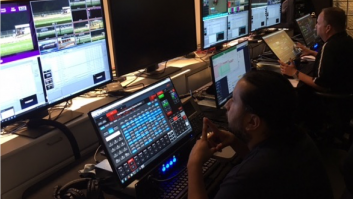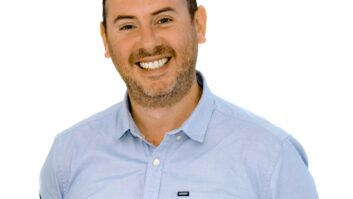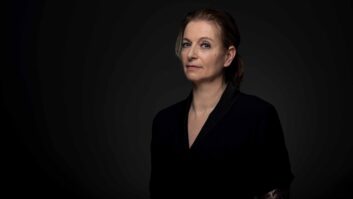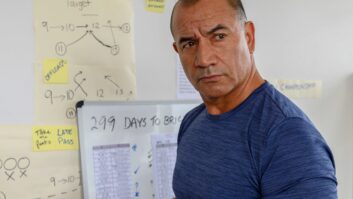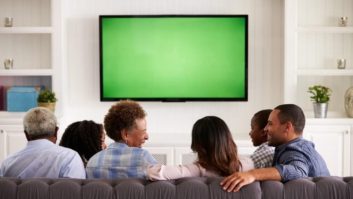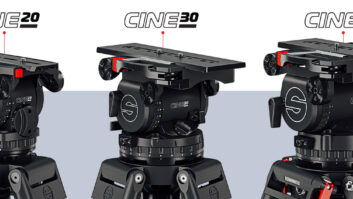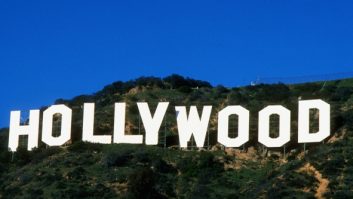Nick Todd, head of production at Zinc Television
Talk us through an average day in your role
I’ve been with Zinc just under a year and I’m finally feeling in my groove. One of the things I have learnt as I have become more senior is that it takes at least six months to begin to really settle into a new role. There are so many nuances to comprehend, so much history to digest and so many relationships to figure out – it takes time! For the past six months, I have been job-sharing the head of production role with my wonderful colleague Clare Sparks. It’s still rare to find job-shares in the TV industry but Clare and I, and Zinc, are finding it is working successfully and bringing lots of added value to the company. Clare works Monday to Wednesday and I do Wednesday to Friday. It means that no days are average, per se! Wednesday is our shared day and is all focused around talking, talking and talking. I’m a big believer in face-to-face rather than electronic contact so, on my office days, it is all about talking in person. Clare and I start Wednesday with a hug and then a fast download on headlines and priorities.
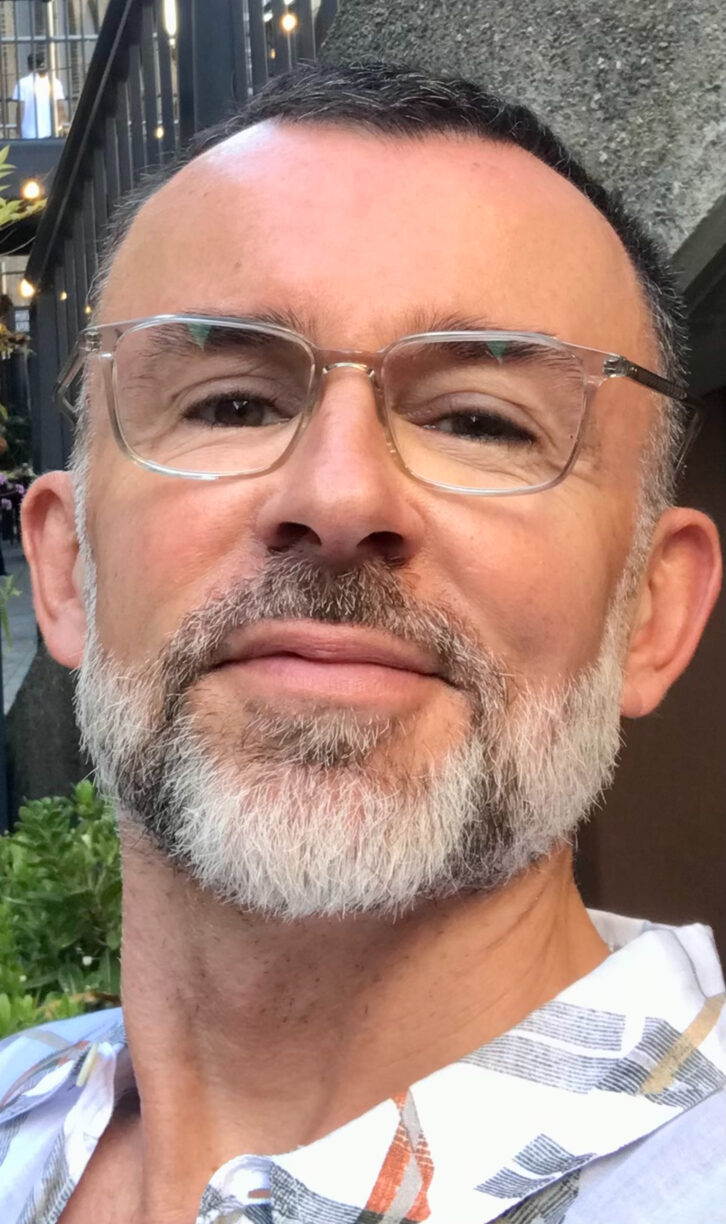
We have split the HoP role into two parts, so we have clear lines of responsibility and are not both grappling with the same issues. We then jump from meeting to meeting – with our MD, our production execs, our PM team and our finance partners. Sharing the role is hugely fun and we both bring complementary strengths and weaknesses, so I think we are doubly effective. For me it is the human relationships that underpin everything so my priority at Zinc has been to ensure that we have the right roles, the right people in those roles and then empower those people to run with their job, being supported and enabled, but never micro-managed. I meet with all my direct reports every week and they update me on all their projects and share their concerns. I’m not a fan of being cc’d into conversations so I prefer to receive regular updates rather than lurk observing things as they happen. There are lots of moving parts in a big and diverse group like Zinc and part of my remit is to collaborate and bring cohesion and efficiency across different labels and companies. Again, it’s all about building relationships, understanding what makes people tick and then finding shared objectives that can work for all parties. My role is to make the architecture of the production process work effectively and interrogate how we produce content and always push for improvements. The HoP role is responsible for delivering the figures that the company needs so a lot of time is spent managing finance and then reporting up to a Group level. This is a different process in a PLC like Zinc and took some getting used to! There is a focus on delivering to shareholders which is different to that which I had come across before and I had to adjust how I operated – not easy at first but I think I have now managed it!
How did you get started in the media industry?
I was 25 and very happily working in, what we used to call in the 90s, “McJobs” – bars and restaurants, working nights and having a lot of fun. I was starting to get some disapproving rumbles from my parents. I had always thought media, in its broadest sense, would be fun and I had a close friend who was working at Planet 24 on legendary ’90s pop-culture show, The Word. He put me in touch with a production manager at Catalyst Television, an indie who had just won a massive contract to produce Gardener’s World for the BBC. They needed holiday cover for their receptionist and booked me for two weeks. I ended up staying for six months and working as their office runner and PA on productions. They got a corporate video gig, and I organised the shoot. Looking back, it was straightforward, but I was terrified and really doubled down on making sure that it all went well. And it did! Then one of the Catalyst production team got a job at BBC Docs and asked me to join them as a production co-ordinator. I recall being hugely intimidated by arriving my first day at the BBC Docs, then still housed in a warren of individual offices in Shepherd’s Bush. I think I knew this was a big opportunity and I felt unprepared and a total imposter! In those days, a three-part doc series had two dedicated production co-ordinators and we had our own office in Kensington House. It was like a studio flat with sofas and a TV and an overflowing ashtray as we smoked from morning till night! The learning curve was steep, but I hung in there and started to understand what skills were needed to succeed and how I could build a career in production.
What training did you have before entering the industry?
Absolutely zero formal training. As I said, I was lucky enough to have a contact friend of a friend who put me in touch with an indie. Just the kind of “contact” entry that I would absolutely not permit now! At Zinc we have a strict policy around internships or entry-level jobs – they must come through a college or organisation with whom we have a relationship, and we absolutely prioritise giving opportunities to those from under-represented sectors. I had a degree in the Social Sciences but that was very little practical help. Once I was at the BBC then I was lucky enough to benefit from their extraordinary range and quality of training schemes. I also believe that working in hospitality was highly beneficial – it taught me how to build rapport, understand people’s needs and manage tricky customer situations. All very valuable in production.
Why do you enjoy working in the industry?
I feel immensely grateful to have been working in the industry for nearly 30 years. It’s been a blast. I’ve worked with some incredible people and made some very special friends. Creating content is hard but, when it works, a kind of magic can occur, and I’ve seen the power and impact of a group of people can have, coming together and doing something remarkable. As unit manager on Panorama, I saw journalists risking their lives to report stories, challenge injustice and bring them to an audience. At The One Show, we created an extraordinary team who produced a live show, day in and day out and truly tapped into the mood and concerns of the viewers. And now at Zinc, on something like the Bargain Loving Brits franchise for Channel 5, we are producing hundreds of hours of high-quality documentary content on very low tariffs and at a dizzying speed. It is gratifying to produce content that people like to watch and talk about. But nothing makes me happier than watching newcomers start out in the industry and doing what I can to help them progress and flourish. I’m now a veteran (!) and I thoroughly enjoy nurturing new talent, mentoring and sharing any wisdom I may have accumulated. I’ve recently started working with ScreenSkills to deliver some of their Film & TV Leadership Essentials courses and I feel very fortunate to have an opportunity to share more widely. I also think it is valuable to keep pushing yourself out of your comfort zone – not all the time, but certainly on occasion. Complacency is never a good look and nerves keep you on your toes!
What piece of advice would you offer someone looking to explore a role similar to yours?
Where to start?! Firstly, I would say know your worth and value but always show humility. Production has traditionally played second fiddle to content creators, but I know how much you need a mix of skills and talent to make a team work optimally – know how much you have to contribute to making the magic work. Play to strengths but be honest about weaknesses and build a team that has the skills you may lack. For me, that is the essence of leadership. Share the credit when it is due and always keep kindness at the centre of your decision making. That doesn’t mean you don’t make the tough calls. Again, that is what leadership requires, but do it with humanity. Don’t sweat the small stuff but make sure that somebody on your team is doing so. I would advise someone to learn something about all the different languages of content creation in 2023. To the editorial team, speak cameras and shots and contributors, to your PMs speak fretting about schedules and cost managers and to the CEO speak about strategy and EBITDA. As a successful HoP you have to be able to hold yourself in all those different environments. And do it all face-to-face, not on damn email!!
